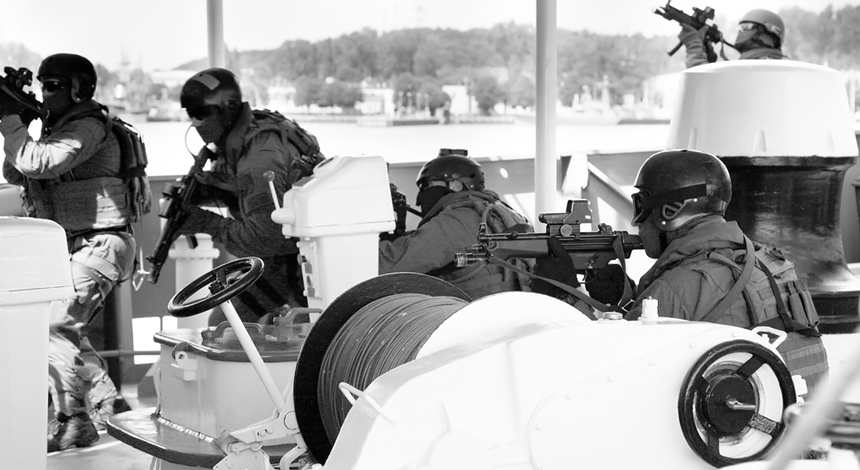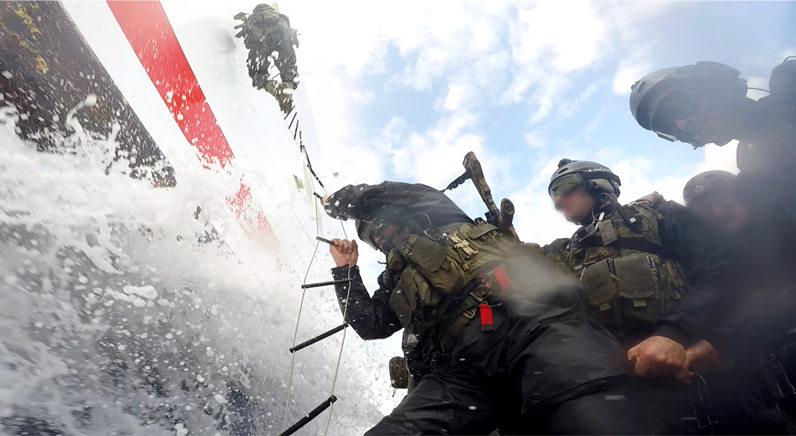Written by Steven Jones (pictured above)
Petro piracy attacks across South East Asia is a growing threat to maritime security. While oil tankers have been the target of these attacks, there is concern that piracy may spread to other vessel types – either as a result of desperate criminals seeking easy targets, or as a result of mistaken identities.
It seems such mistaken targeting may be behind a recent attack on the asphalt carrier “VP Asphalt 2”. The vessel had just left Singapore loaded with a cargo of liquid asphalt, when pirates apparently confusing it for an oil tanker, attacked the vessel. The attack also saw the killing of one crew member, who was tragically shot in the forehead as the pirates escaped after stealing crew belongings.
The current Asian piracy spike is based on pirates hijacking vessels to steal oil cargoes, but as has been seen, the threat does not necessarily end there.
Other vessel types can all too easily become targets too, and so it is imperative that steps are taken to ensure that necessary security measures are in place.
Piracy in the region has been around for centuries and waxes and wanes as military and police intervention is applied or removed. The waters of Indonesia, Malaysia and Singapore have seen a rise in attacks, and there are serious concerns that left unchecked there will be more sustained and violent attacks.
According to analysis these latest attacks owes to multiple factors, such as the fact that numerous vulnerable vessels ply their trade in the area. It has also been suggested that some Asian ship owners are cutting costs, compromising security.
It has also been claimed that Asian pirates have been inspired by the successes of criminals in West Africa, and so have looked to adopt a Nigerian style piracy “business model”. The Gulf of Guinea approach has seen tankers hijacked and held while their petroleum cargoes are transferred into other vessels. The fuel is then sold at great profit.
A number of working groups have been convened to find answers to the Asian piracy problems and there have been a range of potential solutions which are being explored.
Perhaps the key element of the findings is the need to widen the scope of law enforcement. Rather than just arresting pirates at the scene, it is felt that action needs to extended to break up the criminal enterprises ashore.
It has also been stressed that product tanker owners should adopt a regional version of Best Management Practices (BMP). Just as the self-help on-board security measures made a real difference in the Indian Ocean, it is felt they could bring the same security dividend and return around Asia.
The BMPs are designed to ensure the necessary steps are taken to “harden” merchant ships against piracy threats and encourage vigilance and improve responses to attack, such as reporting and record keeping.
Perhaps the most controversial suggestions has been that Singapore, Malaysia and Indonesia should take the necessary steps to ensure they are able to work together to best effect. It is felt by experts that these nations could agree to extend the Malacca Strait Patrols, and they could ensure that they are able to “tag-team” a continuous presence in the waters, especially at night.
Singapore, for its part, is looking to innovate and find new solutions to this all too common criminal problem. Indeed the rise in piracy attacks has prompted the city-state to boost surveillance efforts with a radar-equipped blimp.
An unmanned helium-filled balloon the length of an Olympic-size pool will be tethered to float 600 meters (2,000 feet) above ground – “more than twice the height of Singapore’s tallest building”, the Ministry of Defence said in a statement.
For all the academic research and thought, and even with new blimps flying overhead, it seems there is little in the way of actual action to limit the spread and scale of this new bout of petro piracy. With seafarers being killed and vessels increasingly vulnerable it seems all too easy for the criminals to strike, and action is needed urgently.





















